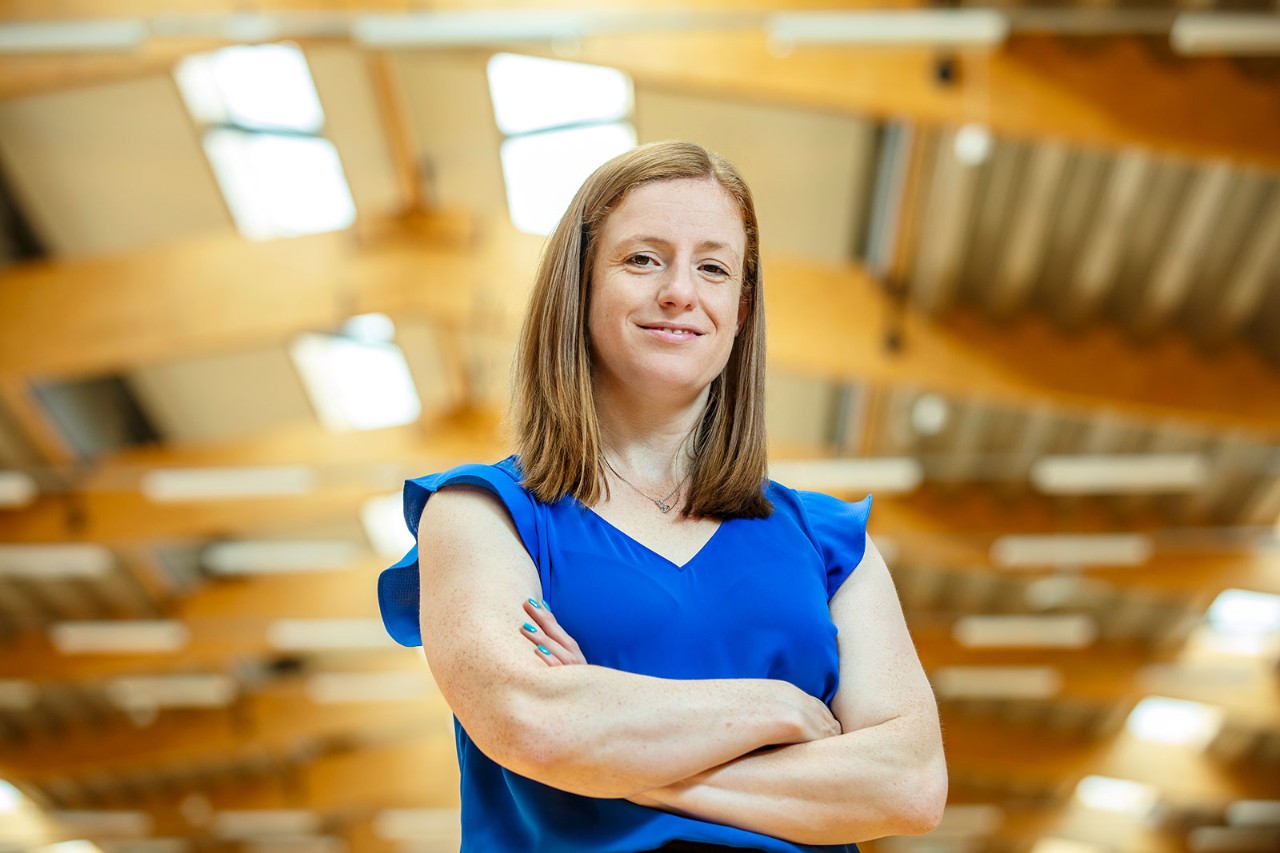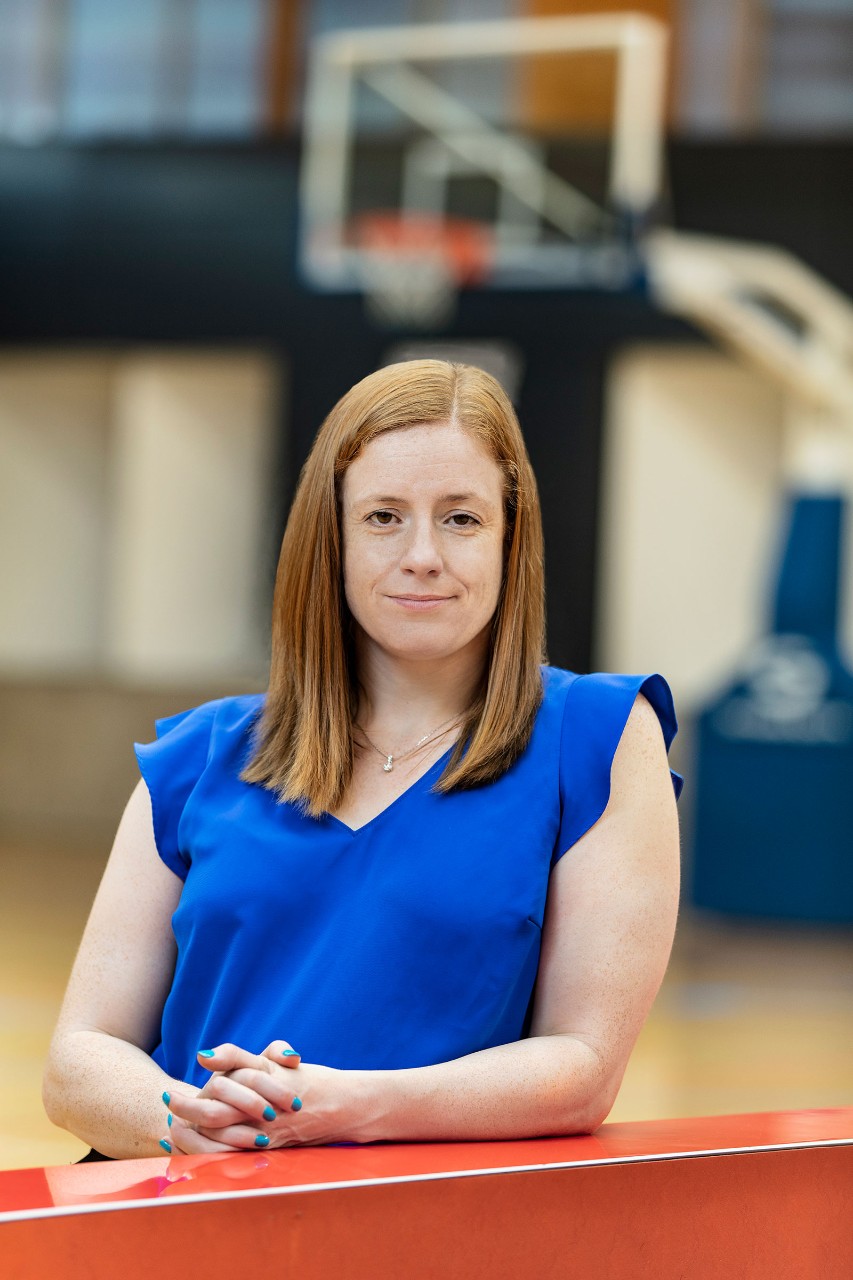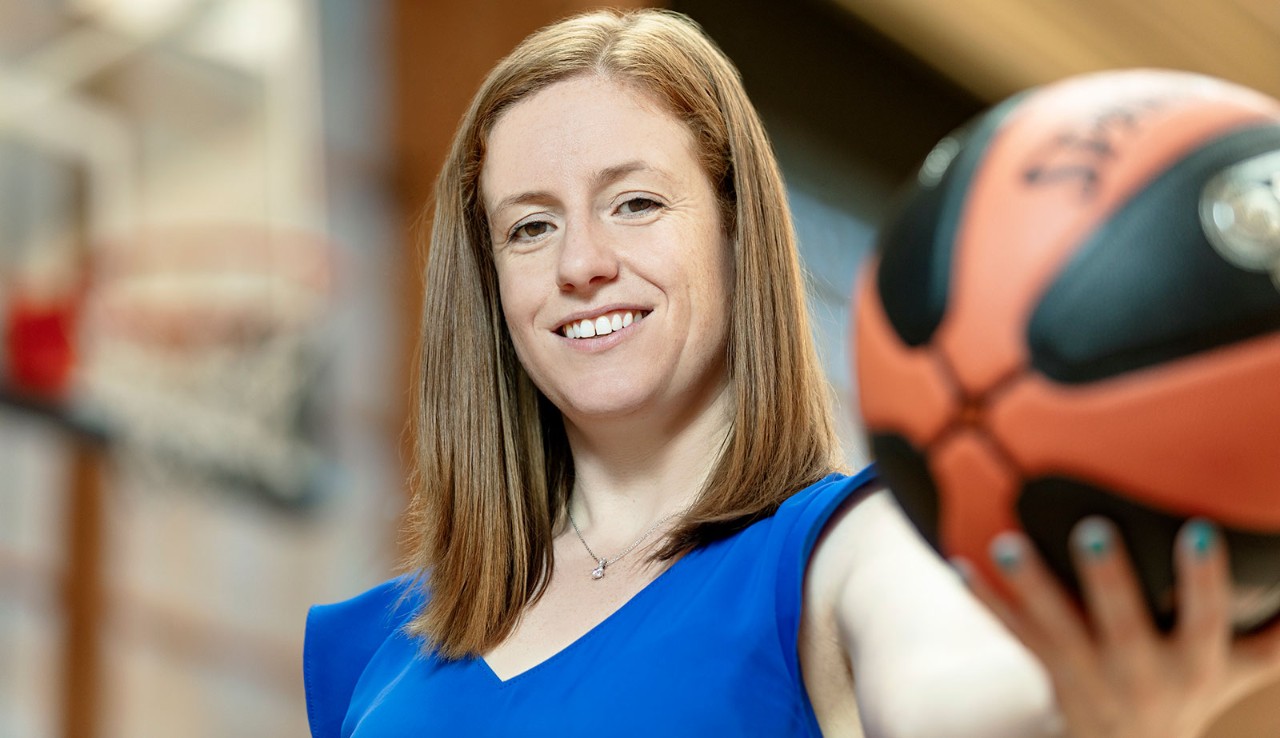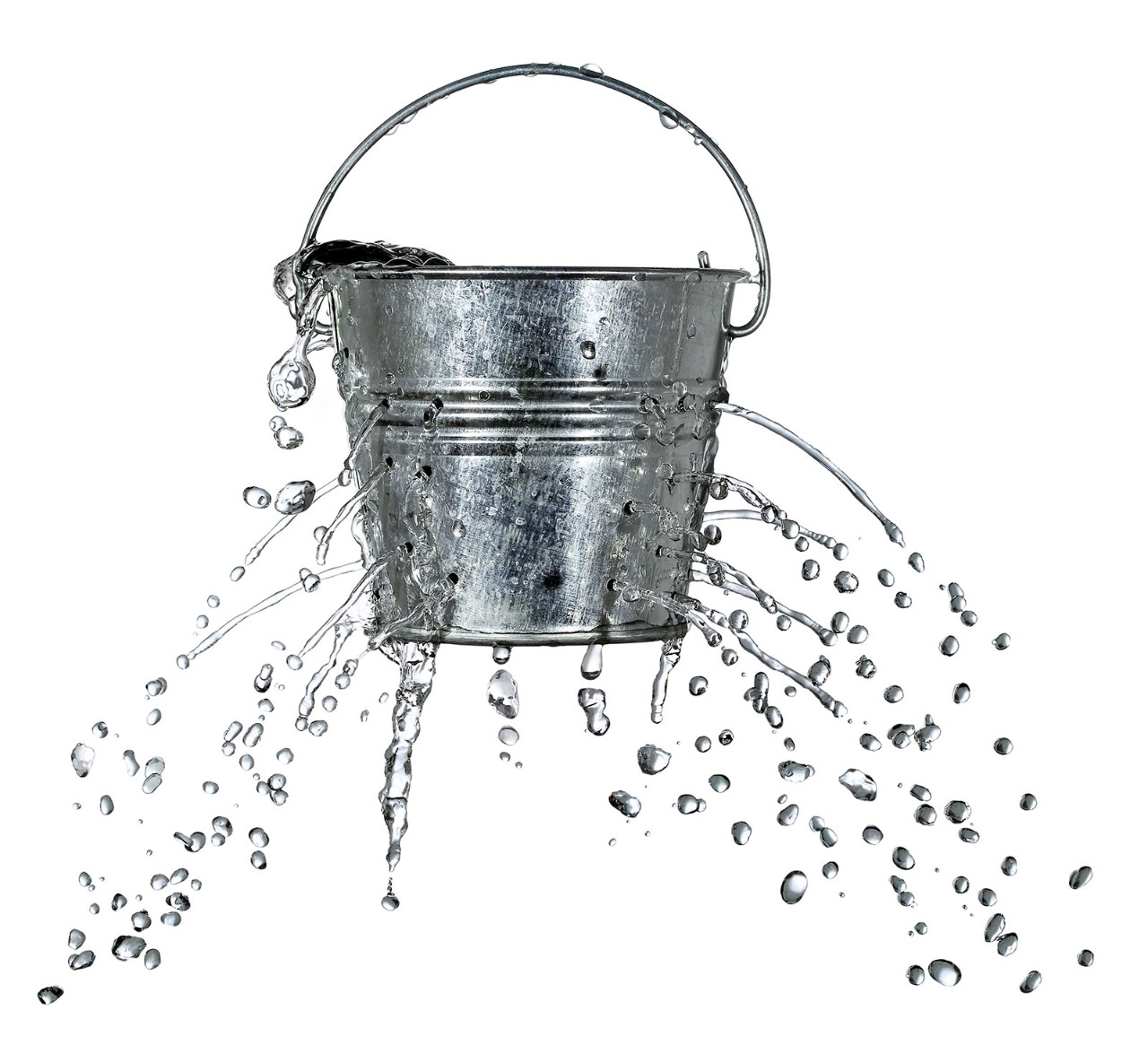
Can any amount of professional training equip a CFO for a year when their organisation’s revenue is slashed by almost half?
As the impact of Covid-19 has played out around the world, that would ultimately be the reality for Caroline McLuckie, CFO of Basketball New South Wales. Of course, back at the start of the pandemic in Australia, in early 2020, she couldn’t have known that as she formulated the game plan that would ultimately see her through: put one foot in front of the other, and keep going.
Numbers had ‘always been easy’ for McLuckie, who grew up in a small Scottish town called Kilwinning, the eldest of two girls and two boys. She found her calling at age 14 when accountancy was offered as a subject at her local high school.
Understanding the mysteries of debits and credits was a revelation. ‘I was lucky – a lot of people don’t get that opportunity at school,’ she says. ‘I’d always liked problem-solving, and realised accountancy would give me the tools to do that.’
Dream job
She studied at the University of Stirling, joining the lacrosse team there to pursue her love of sport. Like most of her cohort, McLuckie originally had envisaged applying for an internship at a Big Four firm, but later realised she’d prefer to be in industry. On graduating, she landed a dream job as assistant accountant at MatchPoint Group, a global sports hospitality company, where she later progressed to the role of finance manager.
The job required her presence at various high-level sporting events in Australia, Singapore and Hong Kong as well as the UK. Travel having opened her eyes to the possibility of living abroad, she decided to boost her professional qualifications to improve her mobility and employment prospects. She settled on ACCA because it is an internationally recognised qualification and would allow her to learn at her own pace.
We could see from talking with parents that all kids wanted to do was play basketball again, and we wanted to make that happen

‘The syllabus and tools ACCA equip you with are tailored towards industry and private businesses,’ she says. ‘Knowing that I might want to move overseas, I liked that I could choose between doing UK tax or international tax.’ It also helped that, during crazy-busy times at work, she could put a unit aside for a bit and come back to it later.
McLuckie moved to Sydney, Australia, in May 2014. For the first few months she had contract work with MatchPoint, then landed a job as finance manager (Asia) at Appco Group, a large direct sales and marketing agency.
A year in, something ‘was not sitting right with me’, she says. ‘I realised that sales and marketing wasn’t for me at all – I wanted to be back in sport. Steve Jobs [the late co-founder of Apple] said the only way to do great work is to love what you do – and that for me was important.’
An advertised position for CFO at Basketball New South Wales held great appeal for McLuckie, who by now was also a volunteer director for NSW Lacrosse, the peak body for lacrosse in the state. She landed the job and hasn’t looked back.
Sport for all
Basketball New South Wales is the governing body for basketball in the state, covering players from tots right up to just before professional level. It has 82 affiliated community-run clubs and over 67,000 registered members, plus another 30,000 participating via the Sport Australia Sporting Schools programmes.
‘In New South Wales, basketball is a strongly growing sport,’ McLuckie says. ‘Gender-wise we are getting closer to parity each year, currently with 29% girls, 71% boys, which is encouraging.’ McLuckie feels that one of the reasons behind basketball’s success is that its rules allow all players to cover the court and shoot for goals (unlike in netball, which is primarily a female sport). These days, she says, ‘girls don’t like to be pigeonholed’.
Steve Jobs said the only way to do great work is to love what you do – and that for me was important
CV
2016
CFO, Basketball New South Wales, Sydney
2018
Director, Australian Lacrosse Association, Sydney
2015
Director, NSW Lacrosse, Sydney
2014
Finance manager (Asia), Appco Group, Sydney
2007
Assistant accountant, later finance manager, MatchPoint Group, Edinburgh, Scotland
The governing body is also not-for-profit, which has very different governance rules than the for-profit sector. ‘The biggest difference is in terms of revenue streams,’ she explains. ‘Ours is heavily reliant on sponsorship and grants from government bodies.’
McLuckie leads a finance team of three accountants among a total of 25 employees. In addition to grants and annual membership fees, Basketball NSW depends on the largesse of just two major sponsors: Spalding, which provides balls and financial support, and Carney Sports Marketing, which assists with uniforms.
‘At the end of the day we are here for the members,’ she says. ‘We want to make sport as cheap and accessible for all. We are heavily reliant on grassroots support, and this can be quite difficult at times.’
Helping out
Basketball NSW’s leagues usually run from March to September, followed by two months of high-development programmes in October and November. But with everyone geared up to get going for the 2020 season, it was over as soon as it began. On Friday 13 March, word came through that, due to Covid, all group sport in New South Wales was cancelled.
‘It’s a day I’ll never forget,’ McLuckie says. ‘The senior leadership team got all our staff together and told them sport is closed from tomorrow.’
The executives ‘went into crisis mode’, meeting on the Sunday in a ‘war-room scenario’ to analyse and plan. ‘Actions had to be taken quickly,’ McLuckie says. ‘We knew that all of April and May were out, and initially looked at re-opening in October, although no one had any idea how this would be. I was just going through an audit, and had to be pessimistic, so I was also looking at not starting until 2021.
‘Then, as the pandemic started to ease up in New South Wales, we thought we might be back by July, or even June if we were incredibly lucky.’
A decision was also made to be open and transparent with staff as to what the business was facing. ‘That transparency got everyone involved in helping out,’ McLuckie says. ‘We knew how crucial it was to get through, not only for us but for the community and for basketball. Our entire team of staff worked harder on fewer hours than they’d ever had to.’
Even as that better-case scenario did ultimately happen (games resumed in mid-June), there was anxiety about travel between country and metropolitan teams, and safety measures needed to be adhered to according to state government guidance.
‘We had to look at regional bubbles, and put it out to associations to restructure around that,’ she says. ‘It was too much for some of them, so we ended up cancelling all junior leagues. Seniors went through to finals, and now we are looking at alternative products for November and December.’
Keeping afloat
Meanwhile, as CFO, McLuckie busied herself with keeping the organisation afloat financially. From an original budget of A$6m (US$4.3m), the business was now looking at revenue for the year of just A$3.6m (US$2.6m).
‘We scrutinised everything – what terms we could negotiate with suppliers, what contracts could be extended,’ she says. Staff were brought into the government’s JobKeeper wage subsidy scheme, every business grant under the sun was hunted down and applied for, and sponsors liaised with to shore up their support.
While at MatchPoint in Scotland, McLuckie had been through the global financial crisis and she drew on the lessons she’d learned from that. ‘I’m a lot more experienced now in dealing with crisis management, and knowing not to take on too much pressure personally,’ she says.
We knew how crucial it was to get through, not only for us but for the community and for basketball
Basketball NSW
Founded in 1938, Basketball NSW is the governing body of basketball in the Australian state of New South Wales. The organisation has grown from just four member associations at its inception to 82 today. State-wide, the sport has 67,000 registered members and a further 30,000 occasional participants.
To keep herself grounded through it all, McLuckie took up drawing again, which was something she’d enjoyed as a child.
‘It calms me,’ she says. ‘I want to carry that forward to the future, making sure I always have pencils and sketch pad in my bag so that if I do feel pressure, I can take 10 minutes to draw and get my mind away.’
Stronger than ever
Did she worry that group sport might never fully recover from Covid-19? That there might be less funding to go around, or a reticence from players to rejoin?
Yes, but thankfully those fears were allayed as the organisation’s two major sponsors renewed their contracts ‘without question’. And when memberships reopened after two-and-a-half months of lockdown, the numbers were up. ‘Compared with this period last year, we’d probably have a 25% membership increase,’ she says.
During lockdown, everyone in the sporting sector got a better understanding of the importance of sport for mental health, especially for children. ‘We could see from talking with parents that all kids wanted to do was play basketball again, and we wanted to make that happen,’ says McLuckie.
Even when a pandemic pulls the rug from everything you’ve known, you can still bounce back.
‘I definitely think the only way is up for basketball at the moment,’ she says. ‘The fact that membership has come back stronger than ever is testament to that. The community we have is full of people bringing great ideas and fresh enthusiasm, and the Women’s Basketball World Cup being held in Sydney in 2022 will be a huge boost for the sport. I think all those are positives.’





